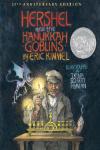Catalogues and Critical Scholarship
From Tablet Magazine:
The Fate of Jewish Collections in 19th-Century Germany
Tracing the birth of ‘Jewish studies’ as we know it
By Ismar Schorsch
Archives tend to put people to sleep. They seem about as exciting as footnotes. Yet the frontiers of knowledge can hardly be advanced without them. What we know of the past is always but “a plank from a shipwreck,” to quote the memorable image of Francis Bacon. Like the Germans, Jews turned to the serious study of their own history in the nineteenth century. For many, especially those trained at German universities, Judaism became a historical phenomenon, subject to the havoc of time and place and ceasing to be static or essential. During the protracted debate in German society in the post-Napoleonic era over whether to extend full citizenship to its Jewish subjects, young Jewish intellectuals began to challenge the dominance of Christian scholars on the nature and history of Judaism with the presumed advantage of the insider. For the first time since the Renaissance, the victims wrote to tell their story in the vernacular rather than in Hebrew. The change in language indicated the shift in targeted audience. Wissenschaft des Judentums was born in battle for admission into the German body politic…















